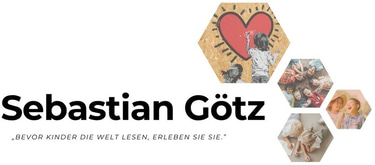Educator Recognition Year: Structured training plan
How to create a competence-based training plan. An overview of all key competencies and learning objectives for the recognition year (early childhood educator).
MANAGEMENT(EN)


The recognition year for early childhood educators represents a significant phase in the training of young professionals in the educational field. It serves as a bridge between theoretical training and practical work in everyday educational practice. During this time, all interns must create and submit a training plan. This plan encompasses several core areas. These areas show both the intern and their supervisor which skills the intern should learn and apply during the recognition phase. It thus provides valuable support for both parties.
Core Areas of the Training Plan
The core area of the training plan for early childhood educators is a written plan covering the entire duration of the recognition year. It is divided into different phases. The following areas should be included in a good training plan:
Pedagogy and Didactics
In this segment of the training, the focus is on teaching trainees how to stimulate, guide, and support children's learning processes. This goes beyond pure theory and involves the practical planning, implementation, and evaluation of educational activities. They are introduced to various pedagogical approaches and methods in order to address the individual needs of the children.
Law and Organization
To be able to act confidently in a professional environment, early childhood educators need a sound understanding of the legal foundations of their profession. This includes aspects of child and youth protection law, data protection, and much more. In addition, they are taught organizational skills so that they can efficiently manage daily life in an institution.
Administrative Tasks
Administrative tasks are a necessary part of an early childhood educator's daily work. In this area of training, prospective educators learn how to maintain documentation, manage parent contributions, place material orders, and efficiently handle other administrative tasks. They are also introduced to common office software and specific administrative tools. Care and Housekeeping
In addition to pedagogical work, care and housekeeping also play a significant role in early childhood education training. Prospective early childhood educators learn how to ensure cleanliness and order in their facility, what hygiene measures are necessary, and how to implement them. Furthermore, basic knowledge of housekeeping is imparted, such as the correct storage of food or the preparation of child-friendly meals.
Health Promotion
The health of the children is paramount. Therefore, trainees are taught knowledge in areas such as nutrition, exercise, and relaxation. They learn how to create a healthy environment and how to take preventative measures to prevent illnesses or injuries.
Practical Guidance
The practical supervisor is your contact person in everyday daycare life and is particularly important for regular supervision meetings. In these meetings, you reflect on your previous pedagogical work and receive impulses and helpful information for your further professional development. Accordingly, you should schedule regular appointments and conduct them outside of the daily daycare routine (group rooms).
Team and Teamwork
In educational institutions, early childhood educators rarely work alone. Therefore, teamwork is a central component of the training. Trainees learn how effective communication works within a team, how to make decisions together, and how to resolve conflicts constructively. They experience how important it is to be able to rely on colleagues and how to work together to achieve the best results for the children.
Collaboration with Parents and Other Institutions
Another crucial aspect is collaboration with parents and other institutions. Trainees learn how to communicate effectively and empathetically with parents to ensure a trusting working relationship. They are also trained in cooperating with other institutions, such as schools or youth welfare offices.
Key Bullet Points for an Overview
Pedagogy and Didactics: Planning, implementation, and evaluation of educational programs.
Care and Household Management: Cleanliness, hygiene, and child-friendly meals.
Team and Teamwork: Effective communication, decision-making, and conflict resolution within the team.
Administrative Tasks: Documentation, management of parent contributions, and use of office software.
Practical Training: Knowledge transfer, feedback techniques, and support for learners.
Health Promotion: Creating a healthy environment through nutrition, exercise, and prevention.
Collaboration: Effective and empathetic communication with parents and Cooperation with other institutions.
Template for a Training Plan for Early Childhood Educators
A structured training plan is crucial for the success and quality of early childhood educator training. This plan serves as a guide for trainers and trainees and ensures that all relevant areas are covered. This template is a plan for a part-time (50%) internship year. If you are completing your internship year full-time, you only need to adjust the dates (at the beginning of each phase) accordingly.
